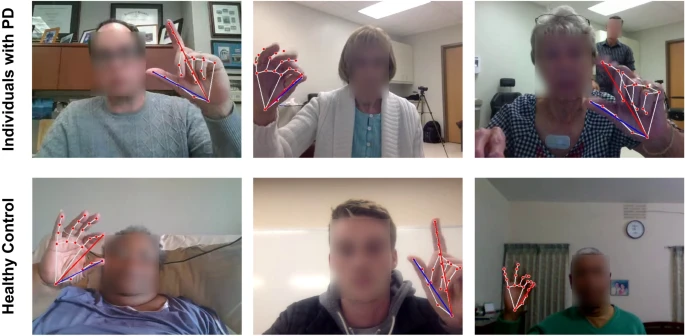
People with Parkinson’s disease rarely receive proper care because of a lack of access to neurological care. In the US, about 40% of those aged 65 or older with PD do not receive care from a neurologist. Access is even more limited in developing regions. Experts suggest an AI-based method to measure Parkinson’s disease severity using a remote finger-tapping test.
Researchers developed a model that uses AI techniques to evaluate motor performance severity of patients. Through performing finger-tapping tasks at home, they analysed the patients with a webcam. A panel of experts and non-experts validated its features, which correlated strongly with the experts’ ratings.
This research shows that remote assessment of the finger-tapping task can be done with reliability. AI models have the potential to perform as well as clinicians and outperform non-specialists in assessing the task, according to the study. The model had an equal performance for all subgroups, suggesting its potential wide adoption in movement disorders.
The tool could enable longitudinal tracking of symptom progression, helping to fine-tune PD treatment. Clinical visits can use it to track PD progression and augment neurologists’ ability to analyze videos with digital biomarkers. In areas with a scarcity of neurologists, the tool could assess symptoms frequently and refer the patient to a neurologist if necessary.
However, the model was not without its limitations. Sometimes, it misclassified severity scores and showed poor accuracy. The model worked well in both high and low-quality videos, making it difficult to evaluate videos taken outside clinical settings. Researchers emphasised ethical considerations as data security, user privacy, and algorithmic bias. When introducing the tool in healthcare settings, these need reviewing.
The researchers also suggest future improvements. These included addressing the impact of tremors on finger-tapping, increasing the sample size, and balancing severity scores as a few improvements to the study.
Cover image taken from the research article
Reference url




